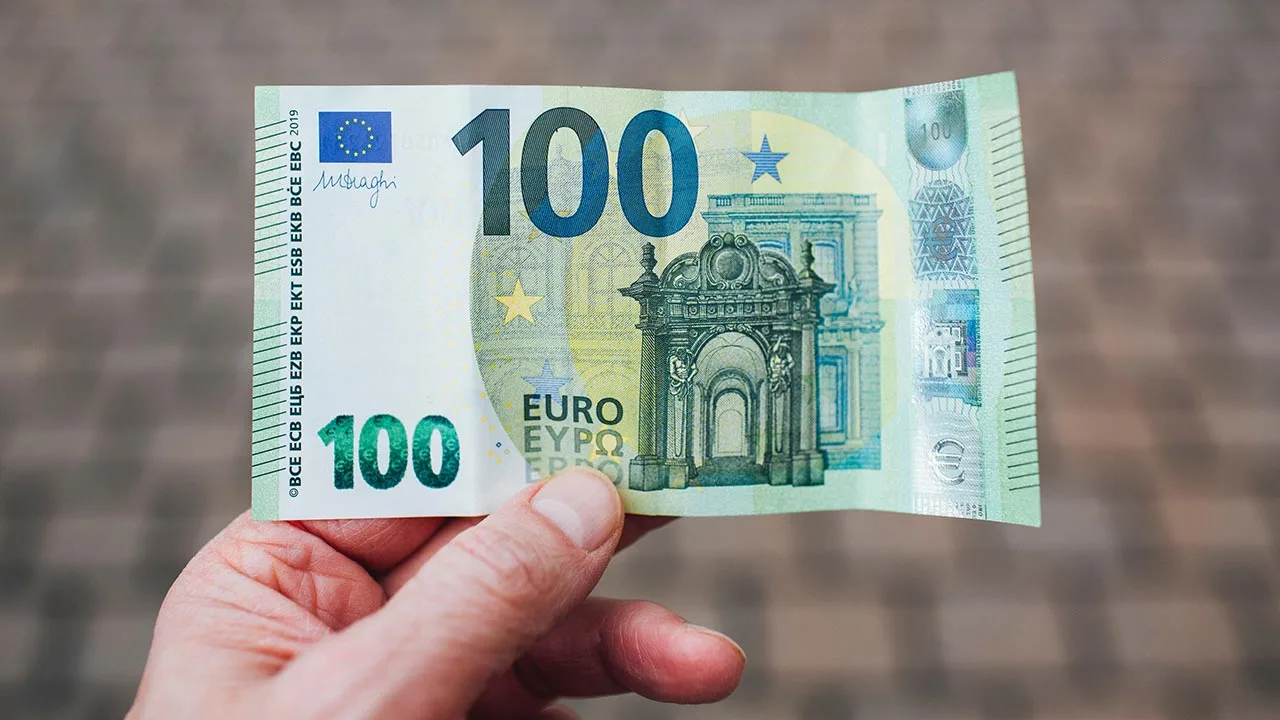Ireland joined the European Union in 1973 and was one of the first countries to adopt the single euro currency on 1 January 1999. However, it wasn't until 2002 that the euro actually entered circulation and replaced the old Irish pound.
Withdrawing cash in Dublin
Dublin is a modern city with great access to cash machines (ATMs) so withdrawing cash should not be a problem once you arrive. Most ATMs will charge for using their machine so if you plan on withdrawing a lot of cash, do some research on the cheapest places before you go, or if you live in the UK you can buy euros before you travel.
- If an ATM charges a percentage fee (typically 1-3% of the amount you are withdrawing), it doesn't matter how much you take out in a single transaction because you'll pay the same fee regardless. For example, if you withdraw €100 in one transaction and the fee is 3%, you'll pay €3. If you take out €100 in ten transactions of €10 each, you'll pay €0.30 x 10 which still equals €3.
- If an ATM charges a fixed fee per transaction, for example €3, you are better off withdrawing the maximum amount of cash you can in one transaction so you only pay the fixed fee once.
- Bear in mind that your own card provider may also charge you a fee on top of any fees charged by the ATM provider. This is especially true for Credit Cards. Make sure you check with your card provider before you travel so you don't come home to any unexpected bills.
Paying by card in Dublin
If you plan on doing most of your spending on a Credit or Debit card, most shops, restaurants and bars in Dublin readily accept card payments so you shouldn't have any trouble paying by card. Your card provider may charge a fee each time you use it abroad so it's best to check with them first.
- If you're using a UK Credit or Debit card to pay for goods in Ireland, your balance will be converted to euros when you make the payment. Your card provider will apply their GBP / EUR exchange rate at the moment your payment is made which may not be very competitive and could end up costing you more. We compare a range of euro currency cards which are suited for spending in Ireland and the rest of Europe and are typically much cheaper than standard bank cards.
- When paying by card, some merchants may ask whether you want to pay in pounds or euros. Always choose euros. If you ask to pay in pounds, the merchant can set their own exchange rate which may not be in your favour.
How much spending money do you need for Dublin?
Dublin is a fairly expensive city to visit; the cost of accommodation, transport and food and drink is on par with UK cities such as Edinburgh and Cardiff, and slightly cheaper than London. You should budget about €60 per person, per day for the duration of your visit, although this will obviously change depending on where you go, where you stay and how you travel around the city.
Prices for common products and services bought by visitors to Dublin are as follows:
| Item | Cost (€) | Equivalent (£) |
|---|---|---|
| 3-course meal for two, mid range restaurant | 70 | 58.82 |
| McDonalds meal | 9 | 7.56 |
| Pint of beer | 5.70 | 4.79 |
| One-way bus ticket | 2.80 | 2.35 |
| Taxi price per kilometer | 1.80 | 1.51 |
| 1 litre of petrol | 1.80 | 1.51 |
| Supermarket pint of milk | 0.65 | 0.55 |
| Supermarket bottle of wine, mid-range | 12 | 10.08 |
Source: numbeo.com. April 2022.
Irish currency denominations
Ireland use the same coin and banknote denominations as the rest of the EU. Banknotes are available in denominations of 5, 10, 20, 50, 100 and 200 euros. A first series of banknotes originally issued in 2002 includes a 500 euro note but these are no longer being issued and are not easily accepted or exchanged in Ireland. Coins are available in denominations of 1, 2, 5, 10, 20 and 50 cents, and 1 and 2 euros.
Where is the best place to buy euros for Dublin?
Euros are readily stocked and available from all UK currency suppliers. Competition is high which means exchange rates are competitive and you can get a good deal with a little shopping around. Use our euro store finder or compare euros for home delivery on our euro comparisons page.

